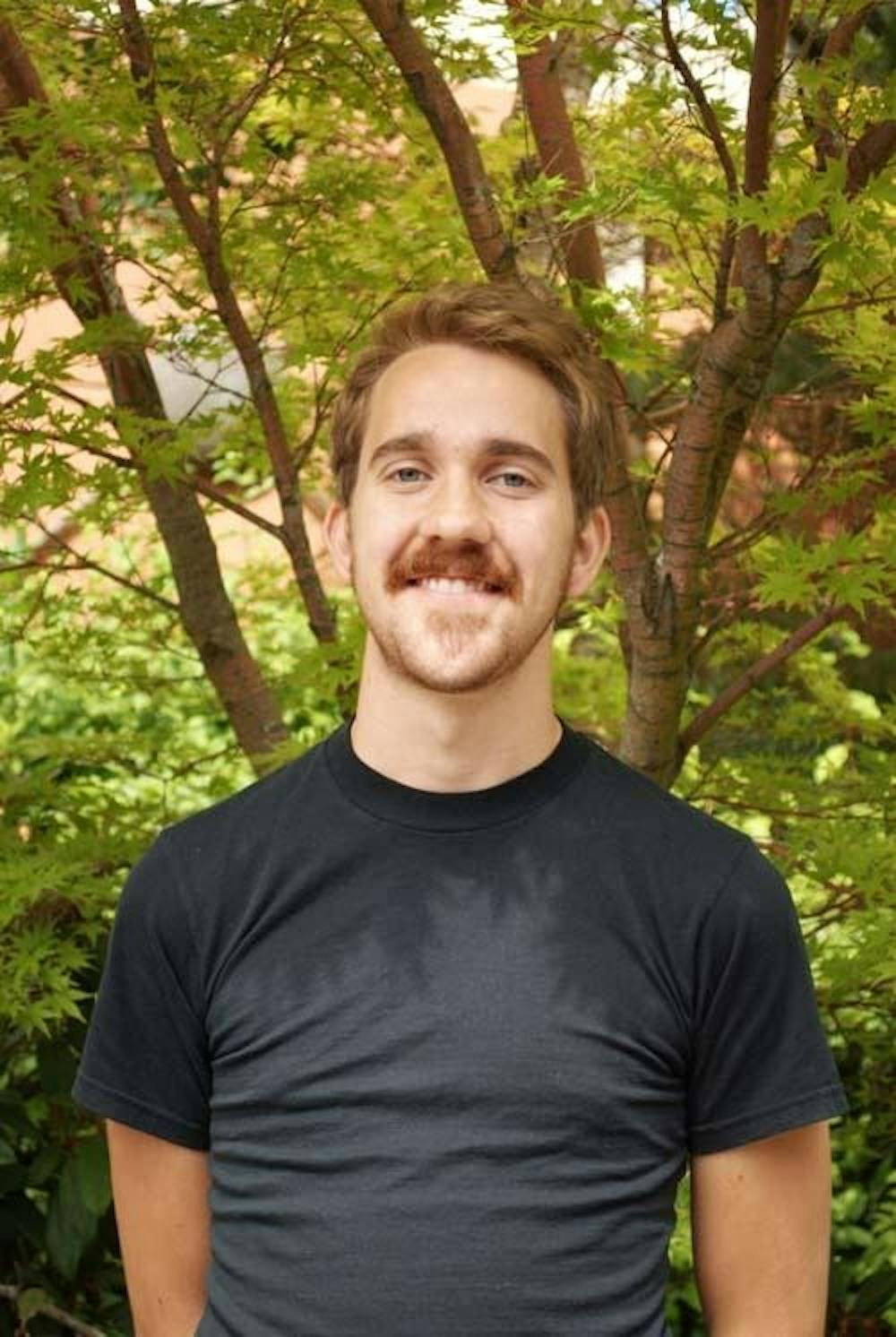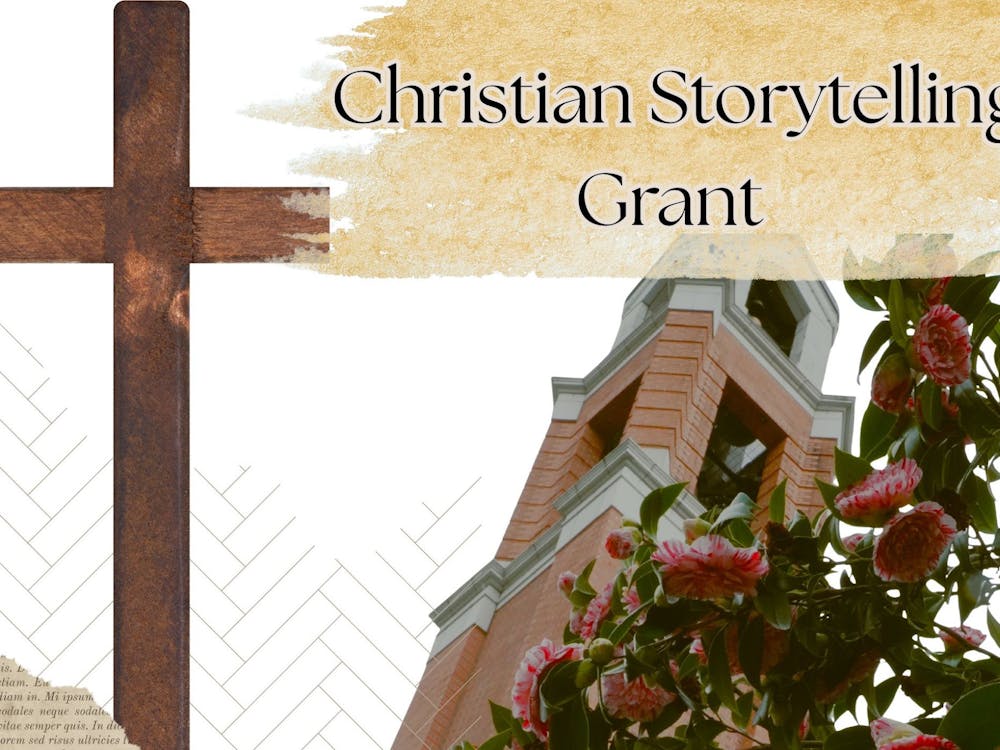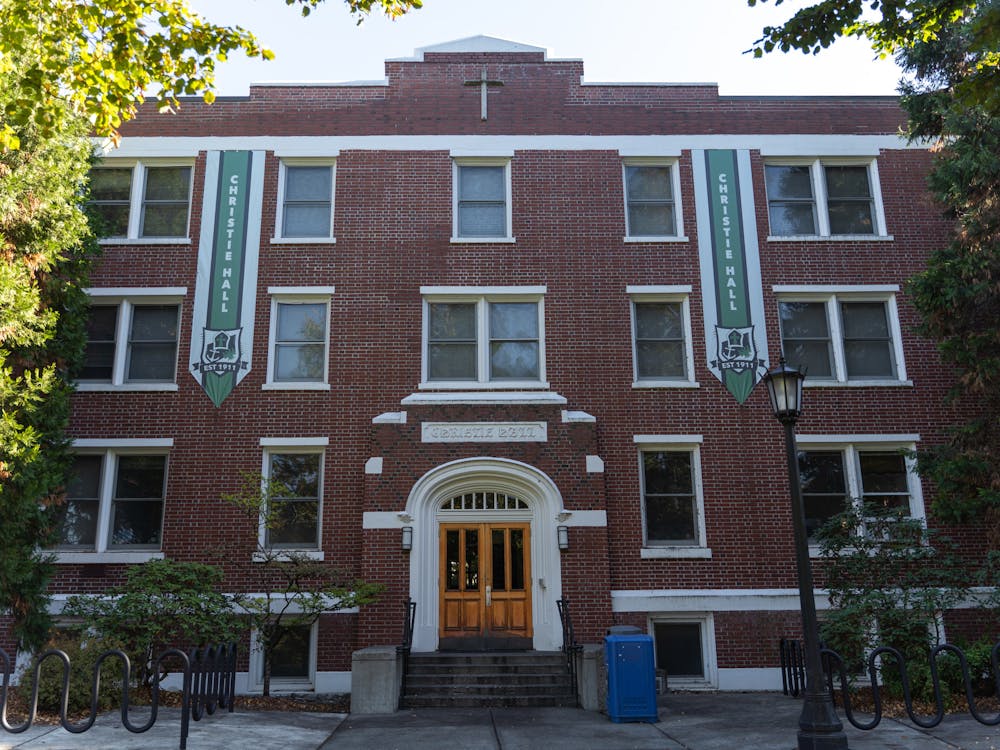The required course will no longer teach world religions
Philip Ellefson (The Beacon)
By Philip Ellefson, Staff Writer ellefson15@up.edu
Next year's freshmen and those that follow will not learn about the life of Muhammad or the difference between dharma and karma. Instead, they will get an introduction to Christian theology.
Starting next fall, Theology 101, which is currently called Introduction to Theology and World Religions, will be an introduction to only Judeo-Christian theology. Hinduism, Buddhism and Islam will no longer be taught.
According to Theology Chair Will Deming, President Fr. Bill Beauchamp asked the College of Arts and Sciences to consider a change in the theology curriculum. Dean of the College of Arts and Sciences Matt Baasten is overseeing the discussion of the new course.
Baasten said he could not discuss the details of the curriculum because it is still in the preliminary drafting stage, but he said the course curriculum will be designed by Dec. 15.
Deming said the change in Theology 101, which is a required class for every UP student, fits with the mission of the University.
"I think especially at a Catholic university, it makes sense to have an introduction to theology, because that underscores the mission of the university in a way an introduction to comparative religions might not," Deming said.
Deming also said the change will help the theology professors use their expertise.
"Only a couple of us are educated on the graduate level in comparative religions, so just in terms of expertise, it makes practical sense to give students our best training," Deming said.
But some students, like sophomore Matt Gadbois, are concerned that eliminating world religions from the core curriculum may narrow students' perspectives.
"I feel like the class currently gives a really open perspective that encourages the open-mindedness that everyone should have, including Christians," Gadbois said.
Sophomore Logan Adams, who took Theology 101 last year, agreed that the course is needed for students to be educated about world religions.
"Half the class couldn't tell you who Muhammad was at the beginning of the semester," Adams said. "[Islam is] one of the Abrahamic religions, and you should cover all of them."
Deming agreed that the change in the curriculum is not ideal, and that understanding world religions is important.
"You're weighing advantages over disadvantages," Deming said. "Ideally, it would be nice if they could also learn about other religions, particularly about Islam. There are large populations of religious people in China and India that are probably gonna come into play in your generation."
But Deming also said the study of world religions is outdated and that it can be short-sighted to lump all non-Christian religions into one category.
"The whole study of religion has matured, and world religions is not as defensible as a category anymore," Deming said. "I mean, what is a world religion?"
Gadbois, who is currently taking Theology 205, Biblical Traditions and Culture, said courses focused on Catholic theology can be confusing for non-Christians.
"Whenever they tend to have just Catholic perspective classes, it's almost the assumption that everyone in the class was raised Catholic, and that's always kind of awkward," Gadbois said. "So for the intro class, that would be inappropriate."
Adams agreed that covering only Christianity could be uncomfortable for some students.
"We had three Muslim guys in my Theo 101 class, and it'd be awkward if we didn't cover their religion at all," Adams said.
But according to Deming, studying one religion in-depth could lead to better understanding of theological thinking.
"[World religions is] arguably a part of a solid liberal arts education, but so is an introduction to theology," Deming said. "And an introduction to theology will certainly help you understand religions as you encounter them, inasmuch as you have a sense of how theological thinking proceeds."
Deming also said that the study of world religions has been expected of schools like UP for the past few decades.
"That was the standard across small liberal arts colleges," Deming said. "It would be expected of a student graduating with a degree in liberal arts to have an understanding of world religions."
Adams said that because UP is a Catholic school, an introduction to Christianity should not be necessary.
"If the school's doing its job right, intro to Christianity should just be around you," Adams said. "Maybe it's just a reflection that they're doing a poor job of service and leadership outside class."
In addition to changing the focus of Theology 101, Theology 205 is changing. Starting next semester, Biblical Traditions and Culture will no longer be a writing-intensive course, and it will not be centered on a long research paper. Deming said the focus of the course may change.
"Because we are changing 101, we are rethinking how [Theology 205] serves as a sequel to 101, so there may be a change in emphasis," Deming said.
Ultimately, Adams is worried that the changes to the theology curriculum will negatively impact students.
"The worst thing you could be is ignorant," Adams said.








